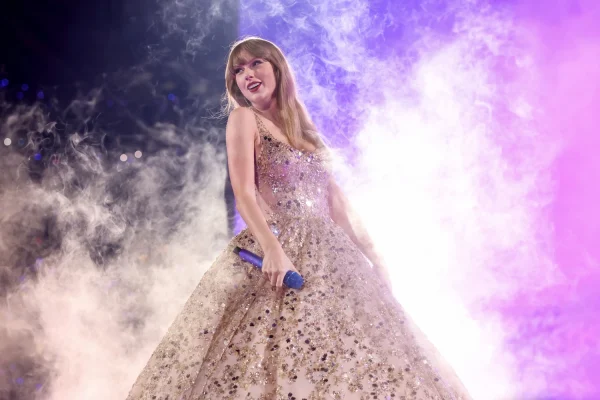The “Cabaret” Today

“Wilkommen! Bienvenue! Welcome!”
The opening number is flashy, upbeat and gives the audience an idea of what the play might consist of: scantily dressed dancers and high energy. Cabaret, which was first on Broadway in 1966, played at the Arden Theatre Company through October 22nd.
The actors were full of emotion and sincerity, making the performance believable. Although this article will comment on the show and its execution, its purpose is to explore the themes presented by the Arden’s production of Cabaret, and their relevance to our world today.
Cabaret takes place in 1931 Berlin, just as the Nazis are rising to power. The story revolves around Cliff Bradshaw, a young American writer traveling across Europe to find inspiration for his unwritten novel. He meets Sally Bowles, a dancer at the Kit Kat Club, a seedy nighttime cabaret.
Between World War I and the Nazis’ reign, Berlin becomes a liberal place where most everyone partakes in a decadent lifestyle. For most of the first act, the play centers on Cliff and Sally’s relationship and the lives of others around them, such as fellow tenant Herr Schultz and his budding romance with the boardinghouse’s owner, Fräulein Schneider.
All goes well until the engagement party of Herr Schultz and Fräulein Schneider; a mutual friend “accidentally” reveals his employment with the Nazi party, and sabotages the upcoming marriage of the couple, one of whom (Schultz) is a Jew. From this moment on, the play takes a dark turn and shifts to the Nazis’ effect on Berlin.
Schneider breaks her engagement to Schultz due to fear of losing her livelihood, a brick is thrown through the window of Schultz’s shop, and Cliff, who defends Schultz, is beaten up by Nazis. The show ends on a somber note, as Herr Schultz expresses his hopes that this Anti-Semitic period will pass, and life will return to normal.
It is a gut-wrenching example of dramatic irony, since the audience knows that Germany will continue down this horrifying path until the end of World War II. Cliff Bradshaw returns home heartbroken, and finally has material for his novel.
More important than the play itself was the message it conveyed to the audience. The circumstances in the beginning of the show are eerily similar to our political climate today. Cabaret showcased the rise of the alt-right and made for thought-provoking political commentary. To many people’s despair, racism, anti-Semitism and misogyny are becoming “normalized” in the United States today, and any minority walks the streets with fear for their future.
The director, in his Playbill introduction, asked, “Why do we continue to allow destructive powers to gain control?” and then followed with, “This feels like a question that we as Americans should be asking.”
The Arden’s performance of Cabaret had impeccable timing and relevance. If you wanted to escape reality for an evening at the theater, seeing Cabaret wasn’t the best choice. But it reminds us all to study history, with the fervent hope we won’t repeat it.

Melanie Metz, senior, is thrilled to be co-editor of A&E for a second year! Along with writing, Melanie enjoys acting, saving the environment and anything...











